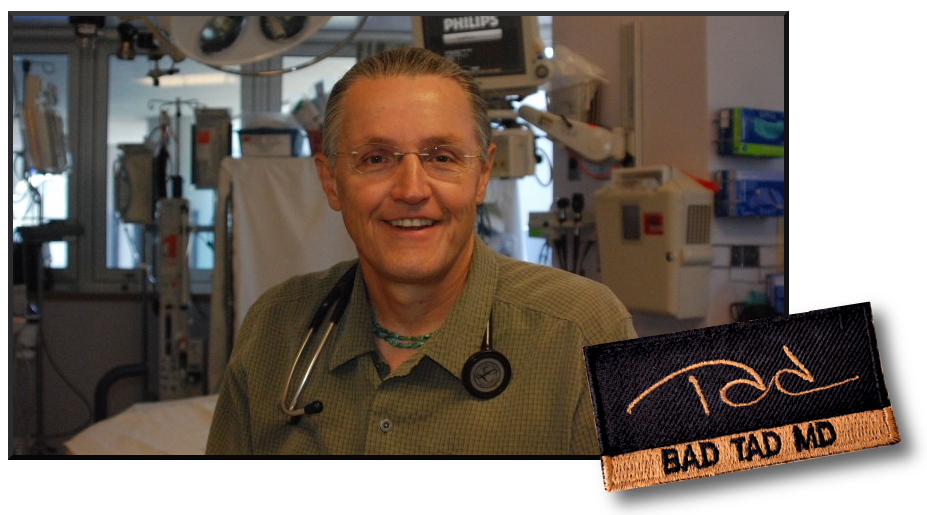Double Overdose
A forty-year-old man was sleeping on the living room couch. Around 3:00 in the morning, his family tried to wake him to send him to bed. They called 911 when they were unable to arouse him. When the paramedics arrived, they found him unresponsive, not breathing and with very small pupils. They diagnosed opiate overdose and administered a shot of naloxone, which blocks the effects of opiates. He immediately woke up. That confirmed their diagnosis and removed the immediate risk to the patient.
In the emergency department, he admitted he had taken too many of his opiate pain pills (Percocet,) which his primary care doctor prescribed him for chronic foot pain.
At that time, he was fine because the naloxone was blocking the effects of the opiates. My main concern then was that the naloxone usually wears off before the opiates. If that happens it is possible for such a patient to lapse, again, into life-threatening unconsciousness. To prevent this possibly happening after discharge, we observed him for a couple of hours to make sure he would not go unconscious again and stop breathing at home. He had no further problems and was discharged about 8:30 when his father came to pick him up.
I later learned that he spent the day with his family then, that night, again fell asleep on the couch. This time, for some reason, the family decided to let him sleep. In the morning, they found him dead, presumably from another overdose.
Unfortunately, addiction to prescription opiates is common and on the rise in our society. This young man nicely fit the demographics of the epidemic: men between 25 and 54 years old. Not only are more people dying from prescription opiate overdose. Heroin use, which had been falling for years, is also on the rise. Addicted people turn to heroin when they are unable to get prescription medications or they become too expensive. Hence, deaths from heroin overdoses are also on the rise.
If you are interested in reading more, here is a reference to my favorite medical reference, Wikipedia, and another from the Centers for Disease Control and Prevention.
https://en.wikipedia.org/wiki/Opioid_overdose
http://www.cdc.gov/drugoverdose/data/overdose.html
Trackback from your site.

Comments (1)
Marlene
| #
That is so unfortunate that someone gets hurt and then they get addicted. Such a horrible reason to die. I feel bad for his family, I’m sure they will feel some guilt because they didn’t wake him up.
What a waste 🙁
Reply